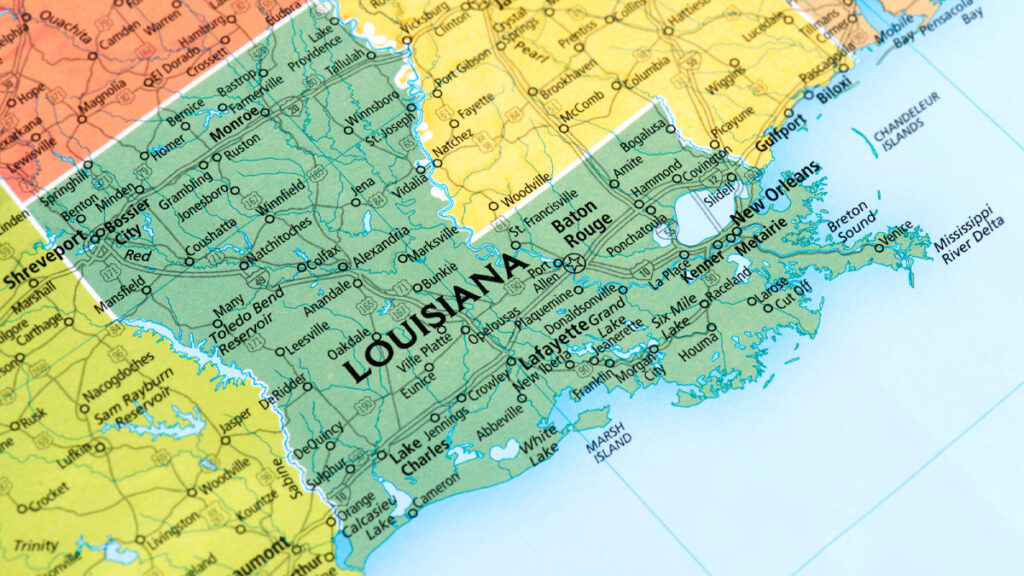
Reforms put in place in 2024 are a positive move toward repairing Louisiana’s insurance market, which has long suffered from excessive claims litigation and attorney involvement that drive up costs and, ultimately, premium rates.
But more work is needed, Triple-I says in its latest Issues Brief.
Research by the Insurance Research Council (IRC) – like Triple-I, an affiliate of The Institutes – shows Louisiana to be among the least affordable states for both personal auto and homeowners insurance.
In 2022, the average annual personal auto premium expenditure per vehicle in Louisiana was $1,588, which is nearly 40 percent above the national average and nearly double that of the lowest-cost Southern state of North Carolina ($840), IRC said. Louisianans also pay significantly more for homeowners coverage than the rest of the nation, with an average annual expenditure of $2,178, representing 3.81 percent of the median household income in the state – 54 percent above the national average.
Louisiana’s low average personal income relative to the rest of the nation contributes to its personal auto insurance affordability challenges, which are exacerbated by its litigation environment.
Louisiana Insurance Commissioner Tim Temple has championed a series of legislative changes that he has said will encourage insurers to return to Louisiana, especially in hurricane-prone areas.
“There are fewer companies willing to write property insurance in Louisiana, and that’s a lot of what our legislation is designed to do,” Temple said. “To help promote Louisiana and change the marketplace so that companies feel like they are going to be treated fairly.”
In June 2024, Gov. Landry signed into law S.B. 355, which puts limitations on third-party litigation funding – a practice in which investors, with no stake in claims apart from potentially lucrative settlements, fund lawsuits aimed at entities perceived as having deep pockets. Third-party litigation funding drives up claims costs and delays settlements, which end up being passed along to consumers in the form of higher premiums.
This progress was undermined when Landry vetoed H.B. 423, which would have reformed the state’s “collateral source doctrine” that allows civil juries to have access to the “sticker price” of medical bills and the amount actually paid by the insurance company.
“In addition to creating more transparency and helping lower insurance rates, this bill would have brought more fairness and balance to our civil justice system,” said Lana Venable, director of Louisiana Lawsuit Abuse Watch in a statement regarding the veto. “Lawsuit abuse does not discriminate – everyone pays the price when the resulting costs are passed down to all of us.”
Continued reforms in 2025 will be necessary to help prevent legal system abuse and promote a more competitive insurance market that leads to greater affordability for consumers, Triple-I says in its brief.
Learn More:
Louisiana Is Least Affordable State for Personal Auto Coverage Across the South and U.S.
Despite Improvements, Louisiana Is Still Least Affordable State for Auto Insurance
Who’s Financing Legal System Abuse? Louisianans Need to Know
Louisiana Litigation Funding Reform Vetoed; AOB Ban, Insurer Incentive Boost Make It Into Law
Louisiana’s Insurance Woes Worsen as Florida Works to Fix Its Problems
Hurricanes Drive Louisiana Insured Losses, Insurer Insolvencies

